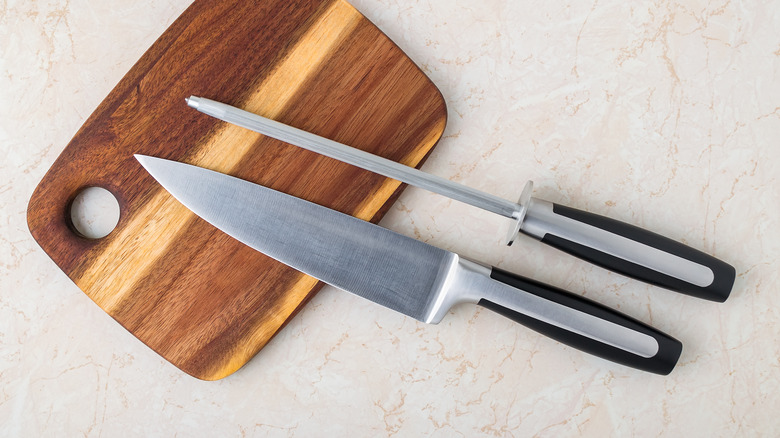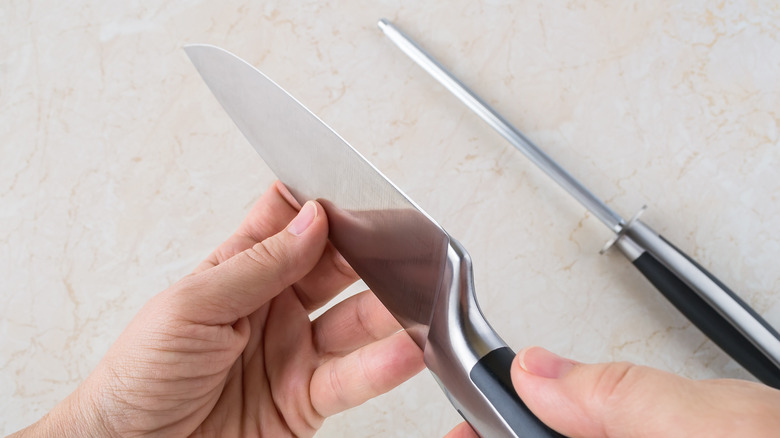The Knife Material Professional Chefs Prefer
A sharp knife is undoubtedly the most essential tool in any kitchen; its versatility and range of use are unmatched by anything. You want a knife that's comfortable to hold, easy to handle, durable, and will maintain a consistently sharp edge. The key to those last two points will depend greatly on the material the knife blade is forged from. If you're looking for professionals to guide you, there is no knife blade material chefs turn to more than high-carbon stainless steel. This material produces a sharp, strong, and corrosion-resistant knife — all the qualities needed for surviving in a restaurant kitchen.
Restaurant kitchens are fast-paced places where it's tough enough to survive, let alone thrive, and the tools used must be equally reliable and durable. For a long time, chefs relied solely on carbon steel knives to get the job done, while home cooks stuck with classic stainless steel because they were easier to find and more affordable. These materials have pros and cons, but when combined into high-carbon stainless steel, they cancel out the cons and elevate the pros, making for one excellent material.
The best of both worlds
Oddly enough, the weak point of a carbon steel knife lies in its hardness. Carbon steel knives typically contain between 0.12% to 2.0% carbon, which makes them difficult to dull. However, they can also be very brittle, depending on the carbon percentage. While they won't bend, carbon steel knives tend to crack and chip when overstressed. They also require frequent passes with food-safe mineral oil to keep them from rusting.
On the flip side, stainless steel knives are the most common choice for home cooks because they're easy to use and store. And while they require more frequent sharpening than a carbon steel knife, a home chef will take much longer to blunt an edge on one than a professional chef. You can also store them without worry, as they do not rust when exposed to water and air because of the roughly 10.5% chromium they include.
Professional chefs agree that high-carbon stainless steel brings together the best of both materials for a knife that will get used hours a day. You get carbon steel's sharpness and precision while getting stainless steel's durability and corrosion resistance. You don't need to be a professional chef to appreciate the quality of material that goes into making a good knife. We can't think of any home cook who wouldn't want a tool with the capabilities of high-carbon steel, even if their kitchen is not as intense as a professional's.

